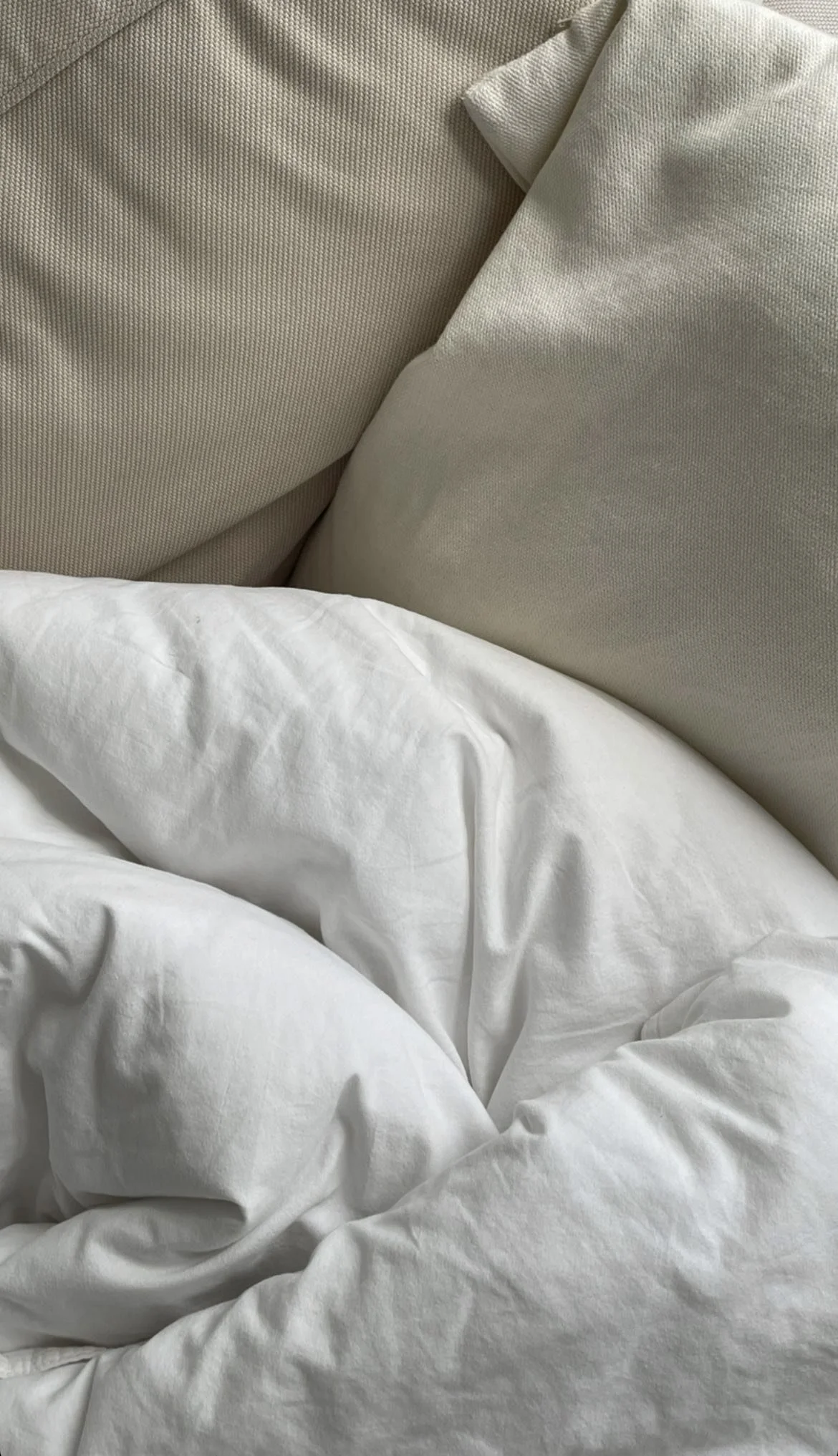Ways For Coping With Anxiety at Night
Sleep is so important for our physical being & mental states. When we achieve a restful eight to nine hours of sleep a night, we are better equipped to cross off our to-do list in an efficient manner. However, when we begin to wind ourselves down for a good night’s sleep, our mind can began to race, opening the door for anxious thoughts to trickle into our conscious mind. During the day, we encounter a plethora of distractions, burying anxious thought patterns just enough so that our mind doesn’t hyper-fixate on them, preventing us from functioning effectively. Yet, in our efforts to fall asleep, our brain lacks those distractions, allowing our anxiety to creep in & fester, keeping us wide awake. While our anxious thoughts can sometimes get the best of us, it is important to practice ways to suppress them to ensure we get enough sleep to set ourself up for success for the next day. Below, I have curated six helpful ways to quiet down the anxious thoughts that keep us up at night.
01
Reduce Caffeine & Alcohol Consumption
Caffeine & alcohol can affect the nervous system in our body, increasing anxiety levels, and interfering with our sleep schedule in a counterintuitive way. Caffeine can stay in our systems for a long while, whether we feel its effects in its entirety or not, so it may be best to consider stopping caffeine consumption by noon. In doing so, it gives the body adequate time to allow the caffeine to leave our system before we wind down for bed. Similarly, alcohol can also affect our sleep patterns, so it may be a good idea to consider staying away from alcohol at least three hours before bed.
02
Set The Right Temperature
In preparation for sleep, our body turns off our internal thermostat, so our brain craves colder temperatures while we sleep. While waking up in the middle of the night can be for a plethora of reasons, one very well could be that the room temperature is too warm for comfort. It may be helpful to set the thermostat to a temperature that is most comfortable within the range of sixty-five to seventy degrees about two to three hours before bedtime.
03
Avoid Technology Before Bedtime
The blue light from our technological devices sends signals to our brain that keeps it alert & awake, which can be counterintuitive when we are preparing ourselves for sleep. Additionally, the content we see on social media can trigger anxiety in both our conscious & subconscious minds. Together, using technology or social media too close to bedtime can make it difficult for us to effectively wind down & fall asleep soundly. It may be best to avoid using technology two to three hours before bedtime. Playing cards, spending quality time with loved ones, playing board games, or talking about your highlights of the day could be beneficial alternatives to using technology before bed.
04
Keep A Notepad Close By
When our minds are riddled with anxious thoughts, keeping us wide awake at night, it may be helpful to write all our thoughts down in a journal or on a piece of paper. If the anxious thoughts are associated with moments in time or situations, we release them when they are written on paper, freeing ourselves. If our mind is racing with all the tasks for the day or week ahead, writing them down will allow us to feel rest assured we can accomplish it all when the sun rises. Using pen & paper is key, as it is a helpful alternative to using any kind of technology, limiting our brain’s exposure to blue light.
05
Turn Down The Lights
Artificial light interferes with our body’s natural sleep-wake cycles. When the sun begins to set, it signals to our brain to release melatonin, the sleep hormone in our body. When we have exposure to artificial lighting such as ceiling lights, kitchen lights, & light from electronics, it interferes with melatonin production, reducing the levels of melatonin released in our body. This in turn can make it difficult for our body to know when it is time to wind down & leave us with feelings of sleepiness. It may be a helpful idea to turn off any overhead lighting and close the blinds when winding down for sleep.
06
Sleep Nutrition
Believe it or not, our nutrition and hunger levels can affect our ability to get a good night’s sleep. It is best not to head to bed too full or too hungry. It may be a good idea to become in tune with your body & truly listen to your hunger cues or what your body is asking for so you can go to sleep comfortably in that regard. Preparing a warm cup of tea can help in helping you wind down & achieve a restful sleep.



